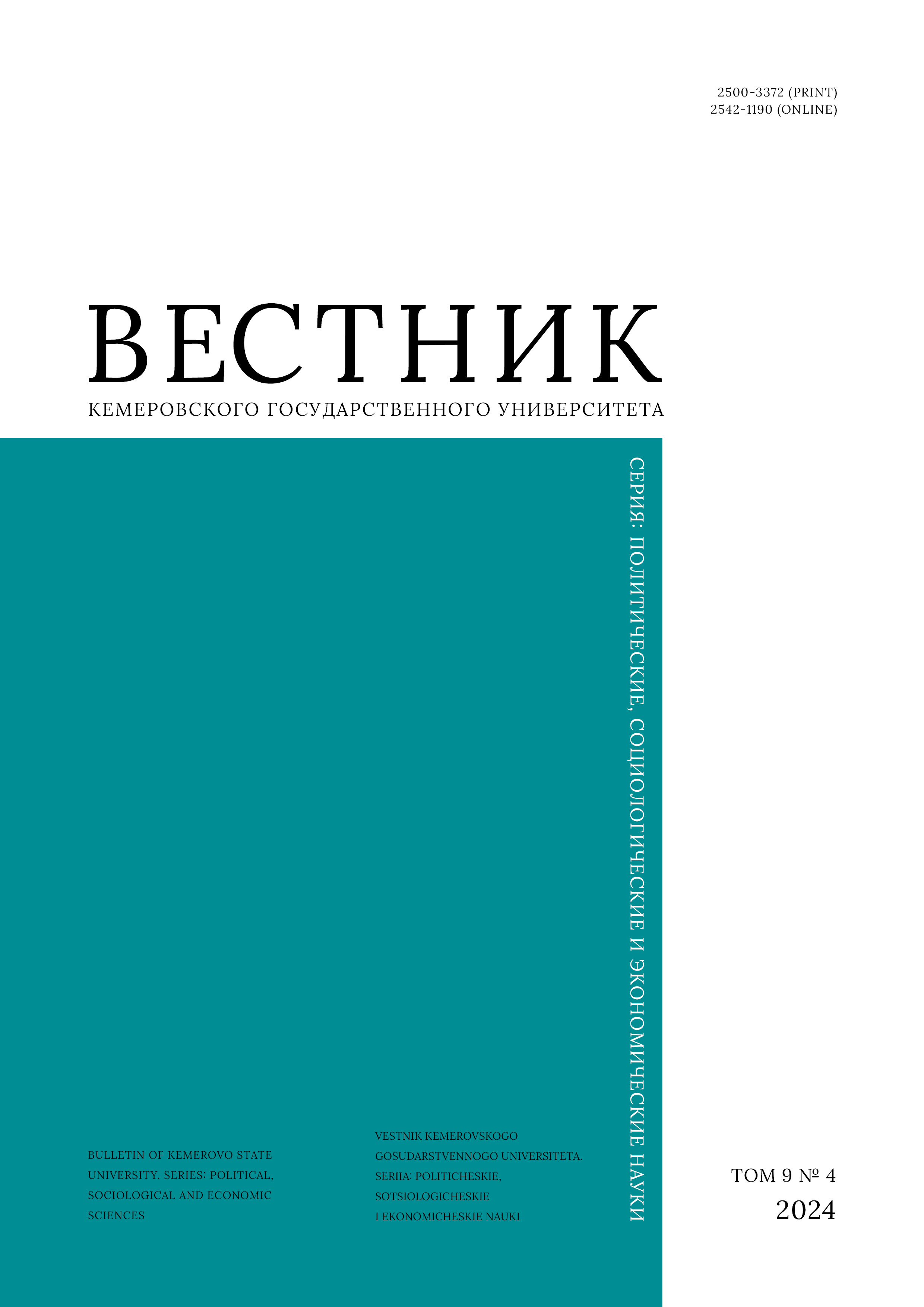Moscow, Russian Federation
As a method of marketing management, value proposition means that the business strategy relies on a promise of value. It is a value offer that represents the product or service as unique, thus increasing the customer loyalty. This approach is regarded as efficient both by marketeers and entrepreneurs because a well-designed value proposition is usually profitable for the company. The author developed an up-to-date definition for value proposition and analyzed specific cases of successful value propositions as a marketing strategy. Standard research methods made it possible to describe the stages of managing the company’s value proposition management, define the existing model of value proposition tools, and identify the goals of value proposition. The illustrative part of the research involved a comprehensive analysis of Russian value proposition practice, i.e., presentation methods, promotion tools, stages, and customer orientation. Value proposition creates a lasting connection between the brand and the consumer, ensuring loyalty and repeat sales as companies employ multiple marketing channels to ensure optimal conversion metrics and deliver the product’s value proposition to the customer.
marketing activity management, marketing strategy, value proposition, promoting of a value proposition, online advertising, offline advertising, customer-oriented company, client
1. Pesha A. V. Employer value proposition – the content and value for the organizations economy. Human progress, 2016, 2(12). (In Russ.) https://elibrary.ru/xkqciz
2. Yakimova Z. V., Tsareva N. A., Zhuk A. E. Modeling the value proposition of the employer in the context the type of organizational culture. Azimuth of scientific research: Economics and administration, 2019, 8(1): 410–414. (In Russ.) https://elibrary.ru/kfwfgk DOI: https://doi.org/10.26140/anie-2019-0801-0098
3. Pulyaeva V. N. The role of the employer’s value proposition in building an HR-brand. Journal of Economics, Entrepreneurship and Law, 2020, 10(3): 659–676. (In Russ.) https://doi.org/10.18334/epp.10.3.100591 EDN: https://elibrary.ru/QKOIER
4. Berezka S. M. Retailer’s value proposition for customers. Gosudarstvennoye upravleniye. Elektronnyy vestnik, 2018, (66): 144–159. (In Russ.) https://elibrary.ru/ytbbim
5. Udaltsova N. L. Designing a value proposition. Kreativnaya ekonomika, 2021, 15(4): 1427–1446. (In Russ.) https://doi.org/10.18334/ce.15.4.111925 EDN: https://elibrary.ru/ZODARV
6. Kovalchuk N. B., Filimonova N. V. Value offer in the system of the company product policy. Vestnik obrazovatelnogo konsortsiuma Srednerusskii universitet. Seriia: Ekonomika i upravlenie, 2017, (9): 82–84. (In Russ.) https://elibrary.ru/ztplil
7. Kreneva S. G., Lezhnina T. A., Yarovikov A. N. Value proposition and its role in short-term planning. Upravlencheskii uchet, 2021, (12-2): 481–489. (In Russ.) https://elibrary.ru/sxcahm DOI: https://doi.org/10.25806/uu12-22021481-489
8. Serova E. G., Fainshtein E. M. The restaurant business value proposition: Intellectual text analysis of online customer reviews. Vestnik of Saint Petersburg University. Management, 2022, 21(1): 47–73. (In Russ.) https://doi.org/10.21638/11701/spbu08.2022.103 EDN: https://elibrary.ru/ZXXMWO
9. Yuldasheva O. U., Yudin O. I. Creating consumer value: Modeling the chain of its development. Problemy sovremennoi ekonomiki, 2012, (1): 218–222. (In Russ.) https://elibrary.ru/pcgkix
10. Osterwalder A., Pigneur Y., Bernarda G., Smith A. Value proposition design. How to create products and services customers want. Get started with... Moscow: Alpina Pablisher, 2015, 312. (In Russ.)
11. Zhukova E. E., Suvorova T. V., Burlakov V. V. Customer focus as a key value of modern competitive business. Moscow: INFRA-M, 2024, 163. (In Russ.) https://elibrary.ru/byfkii
12. Kozlova O. A. Cognitive approach to modeling consumer behavior in the market of environmental goods. The Humanities and Social sciences, 2010, (2): 115–124. (In Russ.) https://elibrary.ru/redkkp
13. Webster F. E., Wind Y. Organizational buying behavior. Saddle River: Prentice-Hall, 1972, 132.
14. Kotler P. From sales obsession to marketing effectiveness. Harvard Business Review, 1977, 55(6): 67–55.
15. Kotler P., Keller K. L. Marketing Management. 12th ed. St. Petersburg: Piter, 2012, 816. (In Russ.)
16. Morgan R. M., Hunt S. D. The commitment-trust theory of relationship marketing. Journal of marketing, 1994, 58(3): 20–38. https://doi.org/10.1177/002224299405800302 EDN: https://elibrary.ru/BVLUPL
17. Lewis R. A., Rao J. M. The unfavorable economics of measuring the returns to advertising. The Quarterly Journal of Economics, 2015, 130(4): 1941–1973. https://doi.org/10.1093/qje/qjv023
18. Kano N., Seraku N., Takahashi F., Tsuji S. Attractive Quality and Must-be Quality. Journal of the Japanese Society for Quality Control, 1984, 14(2): 147–156.
19. Kapustina L. M., Zhuravleva A. Yu., Kronidova L. P. Kano method and the estimation of client's satisfactory. Activation of the intellectual and resource potential of regions: Proc. 4 All-Russian Sci.-Prac. Conf., Irkutsk, 17 May 2018. Irkutsk: BSU, 2018, pt. 1, 105–110. (In Russ.) https://elibrary.ru/xmdijc
20. Aaker D. A. Building strong brands. NY: Simon & Schuster, 2012, 400.
21. Kapferer J.-N. Why are we seduced by luxury brands? Journal of Brand Management, 1998, 6(1): 44–49. https://doi.org/10.1057/bm.1998.43
22. Gad T. 4-D branding: Cracking the corporate code of the network economy. St. Petersburg: Stockholm School of Economics, 2005, 230. (In Russ.)
23. Narver J. C., Slater S. F. The effect of a market orientation on business profitability. Journal of marketing, 1990, 54(4): 20–35. https://doi.org/10.1177/002224299005400403 EDN: https://elibrary.ru/BIMCQP
24. Parasuraman A., Zeithaml V. A., Berry L. L. A conceptual model of service quality and its implications for future research. Journal of Marketing, 1985, 49(4): 41–50. https://doi.org/10.1177/002224298504900403
25. Tretiak O. A. Relational paradigm of modern marketing. Russian Management Journal, 2013, 11(1): 41–62. (In Russ.) https://elibrary.ru/pwyjch
26. Reeves R. Reality in Advertising. NY: Knopf, 1961, 153.
27. Suvorova T. V. Managing brand positioning on the Internet among rapidly developing beauty standards. Human Progress, 2024, 10(3). https://doi.org/10.34709/IM.1103.8 EDN: https://elibrary.ru/WRLAUL

















